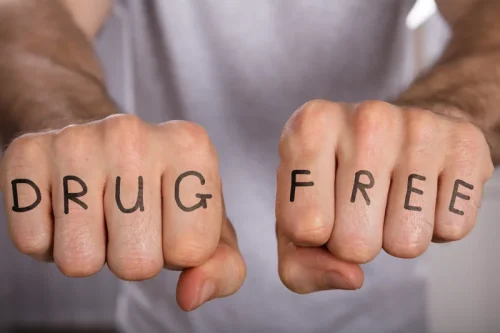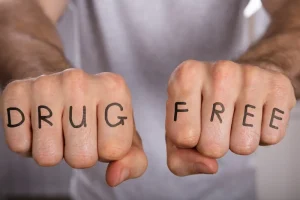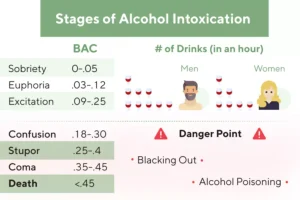

The final stage of relapse occurs when an individual resumes the use of the substance. Some researchers have differentiated a “lapse” (an initial use of the substance) from a “relapse” (uncontrolled use of the substance). However, this distinction may be detrimental to some individuals by helping them to minimize the impact of a lapse. As the DSM criteria make clear, most relapse prevention skills individuals with a substance use disorder have difficulty controlling how much they use, resulting in the likelihood that one drink, for example, will lead to many more if not corrected. Also, an initial lapse can lead to an increased obsession with further use. Sometimes they are brought on by triggering events or situations, such as stress or major life events.
- The core concept of mindfulness is paying attention, awareness, or focus on what you’re doing, where you are, who you’re with, and more.
- Sometimes they are brought on by triggering events or situations, such as stress or major life events.
- There are a vast array of relapse prevention tools one can implement into their daily routine to help prevent relapse.
- Peer support from those with similar experiences can maintain motivation in recovery5.
- A relapse prevention plan can be broken down into small, manageable steps.
- If our guilt is intense, in the absence of a plan, we likely will relapse until our next effort to change.
- Preventing relapse sounds like a secondary goal, but it’s a powerful tool in any recovery.
Table of Contents
Support Your Recovery


Trauma may not have been adequately addressed, necessitating more effective techniques or a longer duration of treatment. Top-quality care should consist of a team of knowledgeable, empathetic professionals capable of helping someone confront their past and equipping them with strategies to handle painful memories and emotions. Common triggers and risk factors for relapse are as varied as the people who experience them.
Identifying Triggers
The cognitive challenge is to acknowledge that recovery is sometimes hard work but addiction is even harder. If addiction were so easy, people wouldn’t want to quit and wouldn’t have to quit. Some researchers divide physical relapse into a “lapse” (the initial drink or drug use) and a “relapse” (a return to uncontrolled using) [8]. Clinical experience has shown that when clients focus too strongly on how much they used during a lapse, they do not fully appreciate the consequences of one drink. Once an individual has had one drink or one drug use, it may quickly lead to a relapse of uncontrolled using. But more importantly, it usually will lead to a mental relapse of obsessive or uncontrolled thinking about using, which eventually can lead to physical relapse.
- While attesting to the influence and durability of the RP model, the tendency to subsume RP within various treatment modalities can also complicate efforts to systematically evaluate intervention effects across studies (e.g., [21]).
- Despite its importance, self-care is one of the most overlooked aspects of recovery.
- The effort to choose your health and well-being every day is a great feat, so continue to reflect and pride yourself on your hard work.
- For example, one could imagine a situation whereby a client who is relatively committed to abstinence from alcohol encounters a neighbor who invites the client into his home for a drink.
Nursing, Allied Health, and Interprofessional Team Interventions
The growth stage is about developing skills that individuals may have never learned and that predisposed them to addiction [1,2]. The repair stage of recovery was about catching up, and the growth stage is about moving forward. Clinical experience has shown that this stage usually starts 3 to 5 years after individuals have stopped using drugs or alcohol and is a lifetime path.
Whole Health Library


This technique involves running “a mental videotape” of the entire relapse process. It involves going through the process from start to finish and noting all the changes that would occur if you give into the temptation. Mindfulness is a practice that involves being present in the moment and being https://ecosoberhouse.com/ aware of your thoughts without judgment. Write down a schedule of your favorite support groups and attend a meeting for additional guidance. Commit to talking with one or more of the support group members regularly. You can also reach out to them whenever you experience triggers or cravings.


Relapse usually results from a mix of psychological, physical, and environmental triggers. While it is a common part of the recovery process, it can lead to dangerous behaviors that may harm both the relapsing individual and their loved ones. Numerous studies have shown that mind-body relaxation reduces the use of drugs and alcohol and is effective in long-term relapse prevention [28,29]. Relapse-prevention therapy and mind-body relaxation are commonly combined into mindfulness-based relapse prevention [30]. In the first study to examine relapse in relation to phasic changes in SE [46], researchers reported results that appear consistent with the dynamic model of relapse. During a smoking cessation attempt, participants reported on SE, negative affect and urges at random intervals.
Jennifer Young Launches Holistic Auricular Acupuncture Treatment for Weight Management Across UK Spas
This response can be a good indicator of whether the individual will relapse. Common post-acute withdrawal symptoms when recovering from addiction include insomnia and fatigue. The New York Office of Alcoholism and Substance Abuse Services (OASAS) reports that these are common potential triggers for relapse.
Mindfulness-Based Relapse Prevention


Another form of bargaining is when people start to think that they can relapse periodically, perhaps in a controlled way, for example, once or twice a year. Bargaining also can take the form of switching one addictive substance for another. They can help identify and treat any underlying issues that could increase your risk of relapse.
